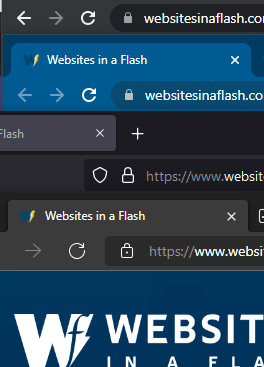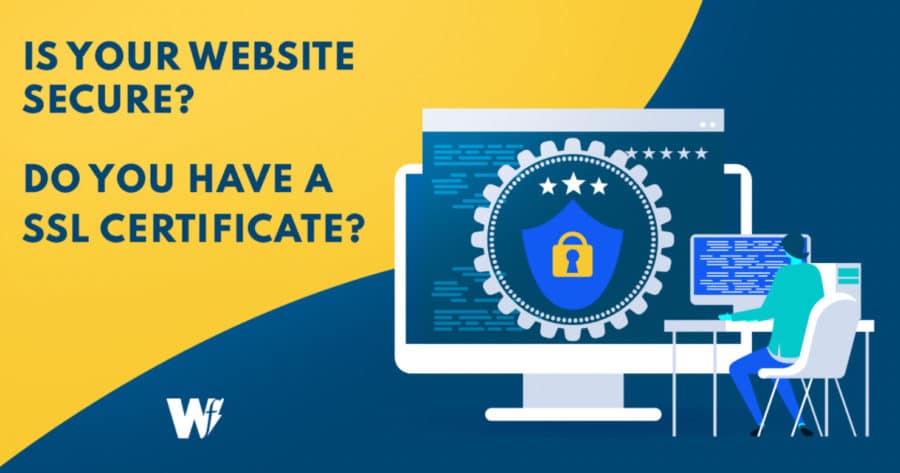What makes your website secure and what do you need to know about it?
Short for Secure Sockets Layer, SSL certificates are a crucial part of website security, but many people aren’t sure how they work or why they’re necessary. In this article, we’ll explore what SSL certificates are and how they work to secure websites, as well as explore the issues that could prevent you from getting one yourself (especially if you’re not in the US). Then we’ll take a look at one of the most important questions concerning website security: whether or not SSL certificates actually help to secure your site and keep it safe from hackers, malware and other problems.

What is SSL?
The acronym SSL stands for Secure Sockets Layer, a technology for securing communications over computer networks. The name originally meant Secure Socket Layer but it has become common practice to drop Layer from the nomenclature. It was developed by Netscape Communications in 1994 as an upgrade to their earlier security protocol, SOCKS. Today, SSL is used worldwide on web browsers and servers to encrypt data sent via HTTPS (not HTTP). A website secured with SSL (HTTPS) will appear with a green (or grey) padlock icon in your browser’s address bar:
SSL, SEO, & HTTPS: What’s the Difference?
HTTPS isn’t a concept that was invented because of search engines. HTTPS is an encryption standard that’s used by all major browsers, including Firefox, Internet Explorer, Safari, Chrome and Opera. To put it simply: HTTPS creates a secure connection between you (the user) and your web server, ensuring your communications are protected from outside interference or spying. Search engines such as Google are now factoring in HTTPS as part of their ranking algorithm—meaning if you have correctly secured your website, you will get a boost in rankings over other sites that are not secure when someone searches for keywords related to your site.
Do I need an SSL Certificate on My Site?
An SSL Certificate is important because it helps provide website security and keep your customers secure while they’re on your site. If you collect any personal information or payment information on your site, you’ll want to use an SSL Certificate. In fact, Google has said that having an SSL Certificate will help improve a website’s ranking in search results—and if your business handles any sensitive data (like banking information), you’ll also be forced by regulation to get one. So yes, an SSL Certificate can be quite helpful for site security—but there are some things that aren’t so secure with these certificates. Read on!
Is Buying an SSL Certificate Worth It for My Business?
As you’re probably aware, SSL certification is a security measure for websites. It protects credit card information and other important data that users enter onto your site by encrypting it so that hackers can’t view or access it. But buying an SSL certificate is still something many businesses don’t do, whether because they aren’t sure of what an SSL does or because they think they’re too expensive.
Is it really worth it? Yes!
How Do I Buy an SSL Certificate for My Website?
An SSL certificate is a great first step for any website owner serious about establishing trust with potential customers. There are two types of SSL certificates: Domain Validated (DV) and Organization Validated (OV). For most website owners, DV is enough, but OV certificates provide better security. Understanding when each type of certificate makes sense will help you choose which one is right for your website. Here’s how to buy an SSL certificate for your website in just a few simple steps: First, determine whether or not you need it.
How Does an SSL Actually Work?
Here’s a great video explaining the exact details of how an SSL works both theoretically and technically:
Is it Safe to Install an SSL Certificate on My Domain Name Right Now?
As an internet business, it’s important to have a secure website. After all, your business is based on trust—and if someone has a question about whether or not you’re actually legit, your brand could suffer. So why do so many website owners avoid installing SSL certificates? The answer: fear of downtime. Most SSL providers warn against installing a certificate during times of high traffic—so many people wait until their sites are under-utilized to install one. But that means you’re putting your customers at risk for fraud and identity theft—which doesn’t make any sense!
How can I set up my own self-signed certificate?
To set up your own self-signed certificate, you’ll need a CSR file, a private key, and some tools. The CSR is basically an encryption request generated by your computer or device. You’ll also need to generate a public/private key pair that corresponds with your CSR. This video breaks down the details:
Hopefully, this gives you a great understanding of the importance of security certificates and how to install a Security Certificate on your website. Leave a comment if you have any questions about this.

